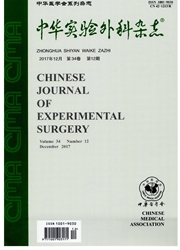

 中文摘要:
中文摘要:
基于循证医学与经验医学的区别阐述循证医学的概念。循证医学的特点主要表现在以证据为核心,立题遵循四原则,实践过程遵循五步骤,集成多学科交叉优势,基于问题、立足于用、以人为本。循证医学的证据从最初的老五级分级发展到2004年的GRADE标准,实现了从证据研究到证据使用的跨越。循证医学的理念从针对临床问题发展到循证保健学甚至循证科学,循证医学的应用领域也随之扩展到公共卫生领域和社会科学领域等。最后以慢性移植物失功的器官特异性研究为例具体说明了循证医学的研究方法。
 英文摘要:
英文摘要:
We introduced the concept of evidence- based medicine (EBM) by comparing it to expe- rience-based medicine. EBM is evidence-centered and patient-oriented discipline with four principals for selection of research questions, and five-step practice. EBM focuses on solving clinical problems by using multiple disciplinary knowledge and methods. Quality of evidence has been developed to GRADE in 2004, from levels of evidence to grades of recommendations. The practice of EBM is no longer restricted itself to clinical issues, but has been expanded to the domains of healthcare, and even to social sciences. At the end, we gave an example of analysis on organ specificity of chronic graft dysfunction to illustrate how to use evidence.
 同期刊论文项目
同期刊论文项目
 同项目期刊论文
同项目期刊论文
 期刊信息
期刊信息
